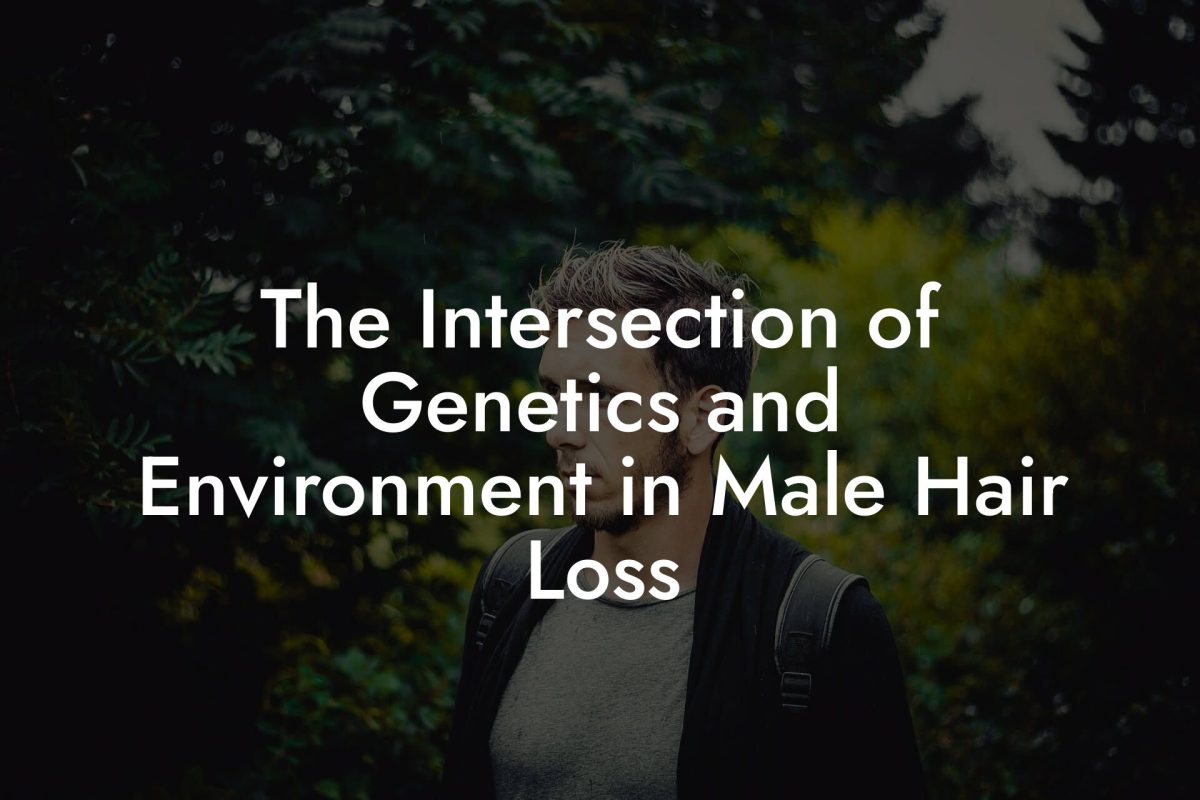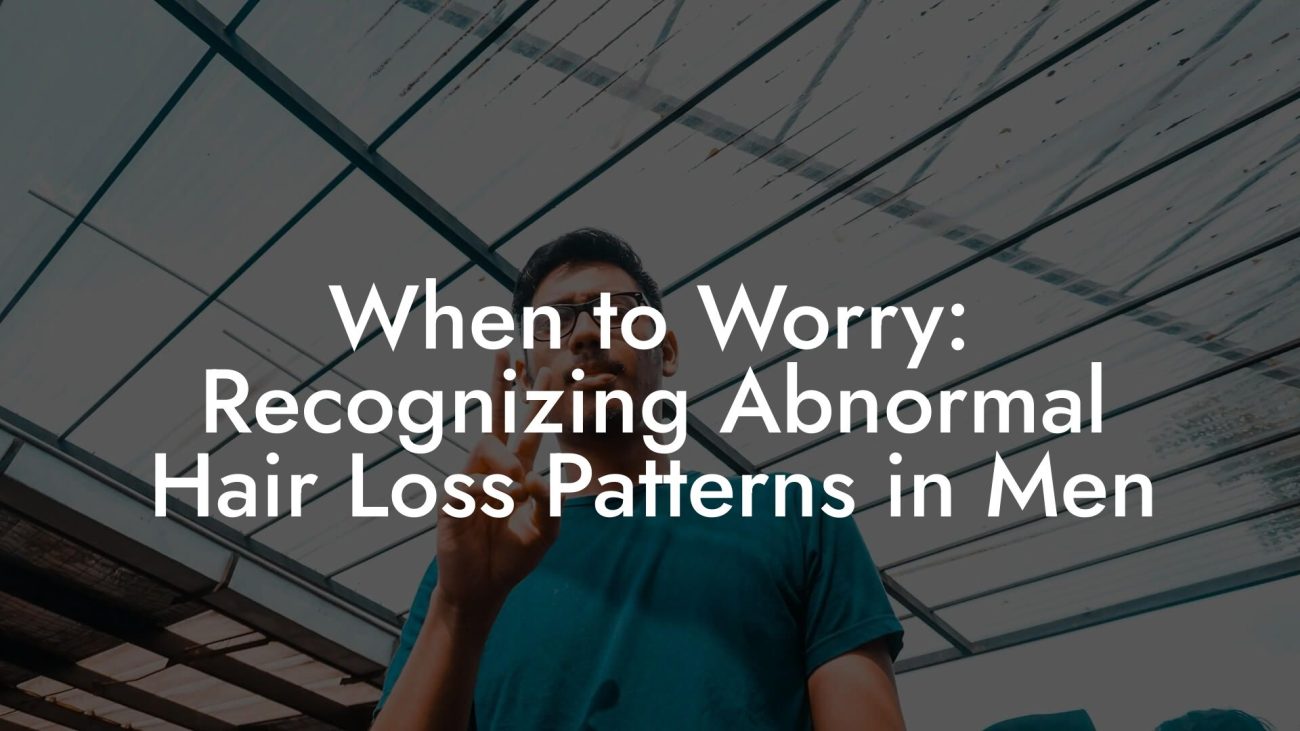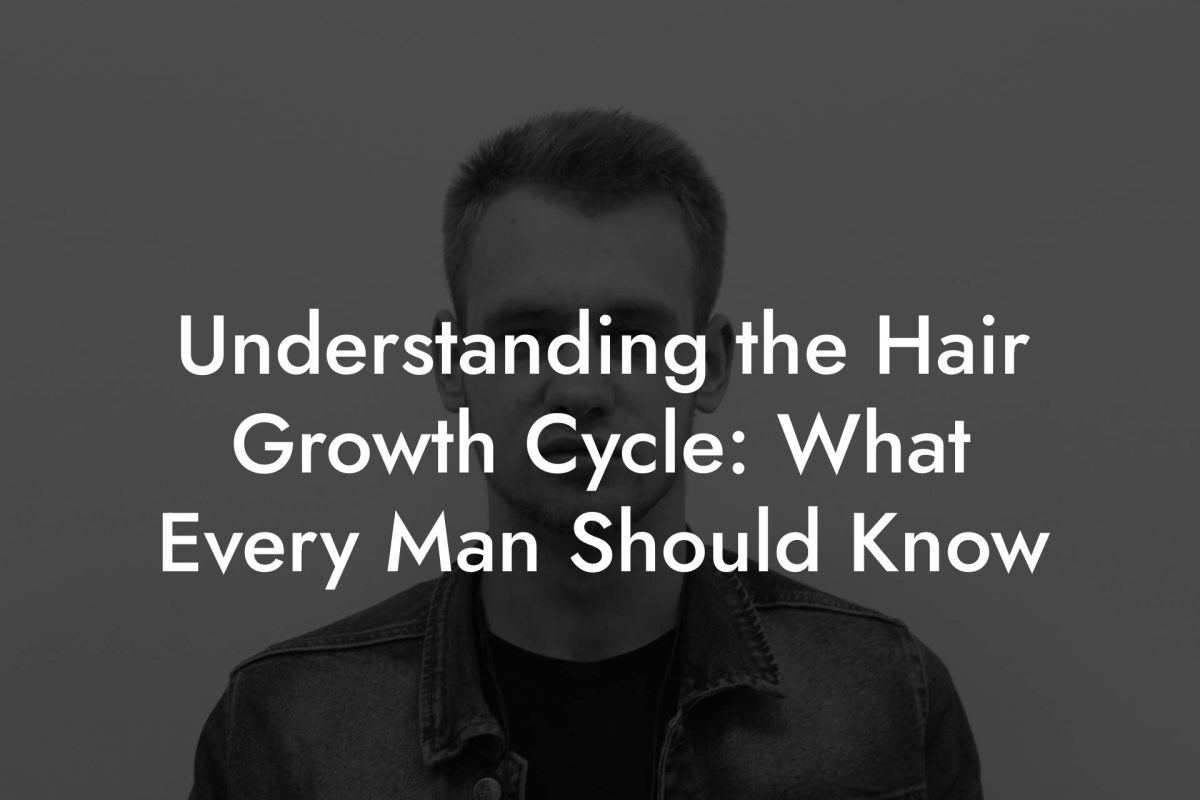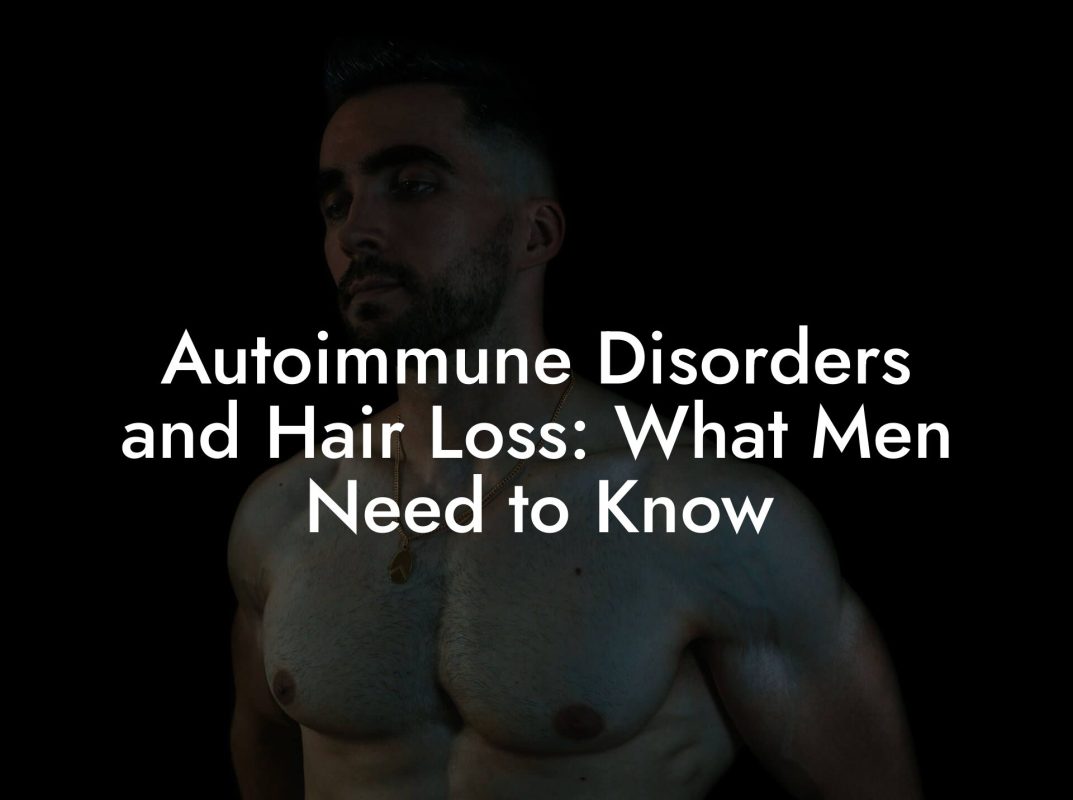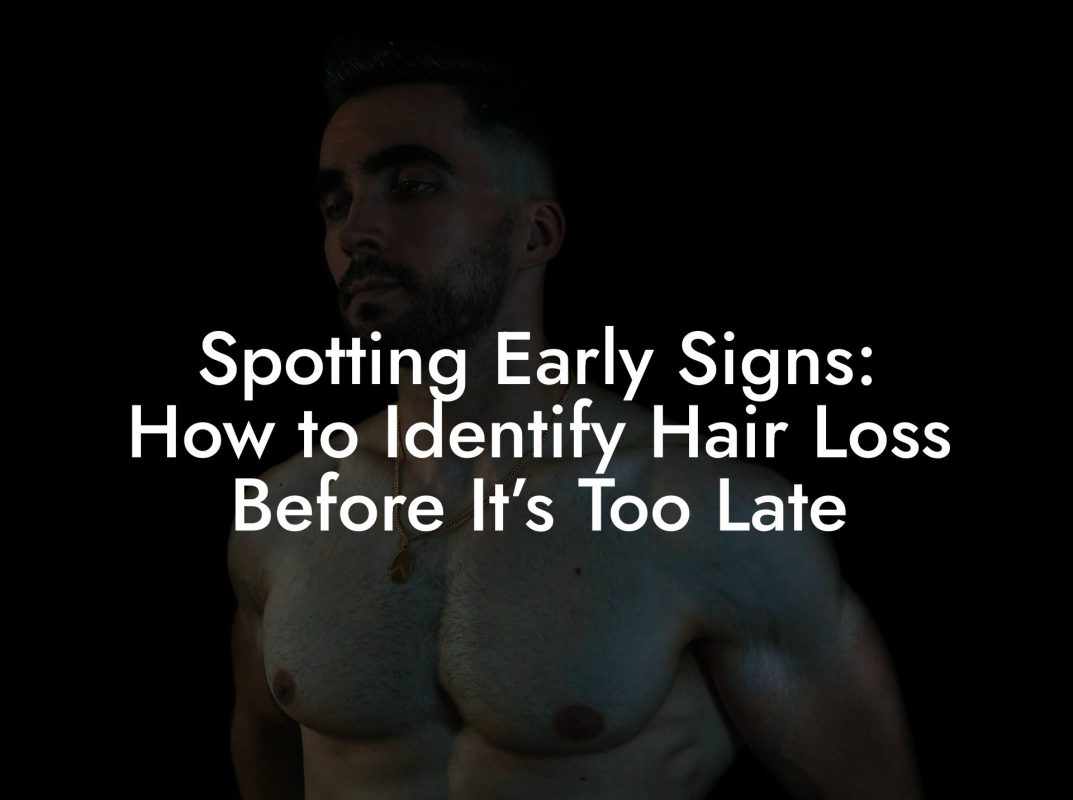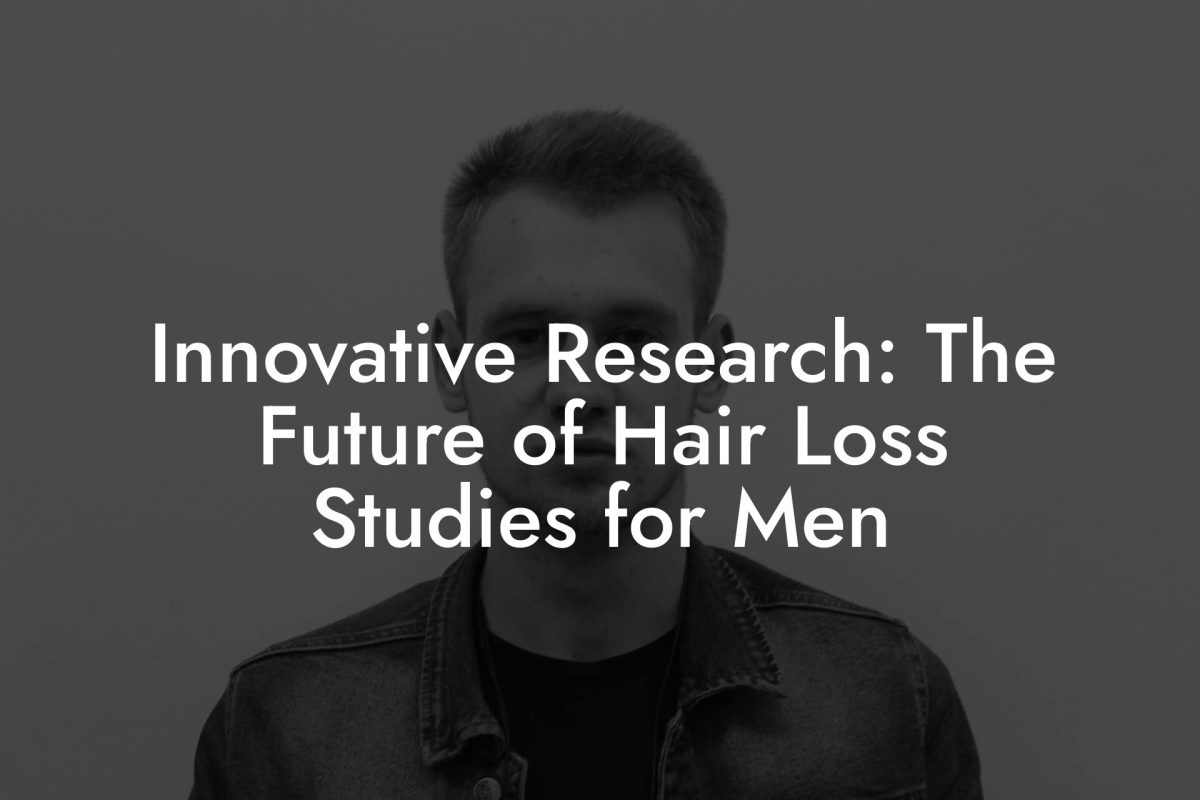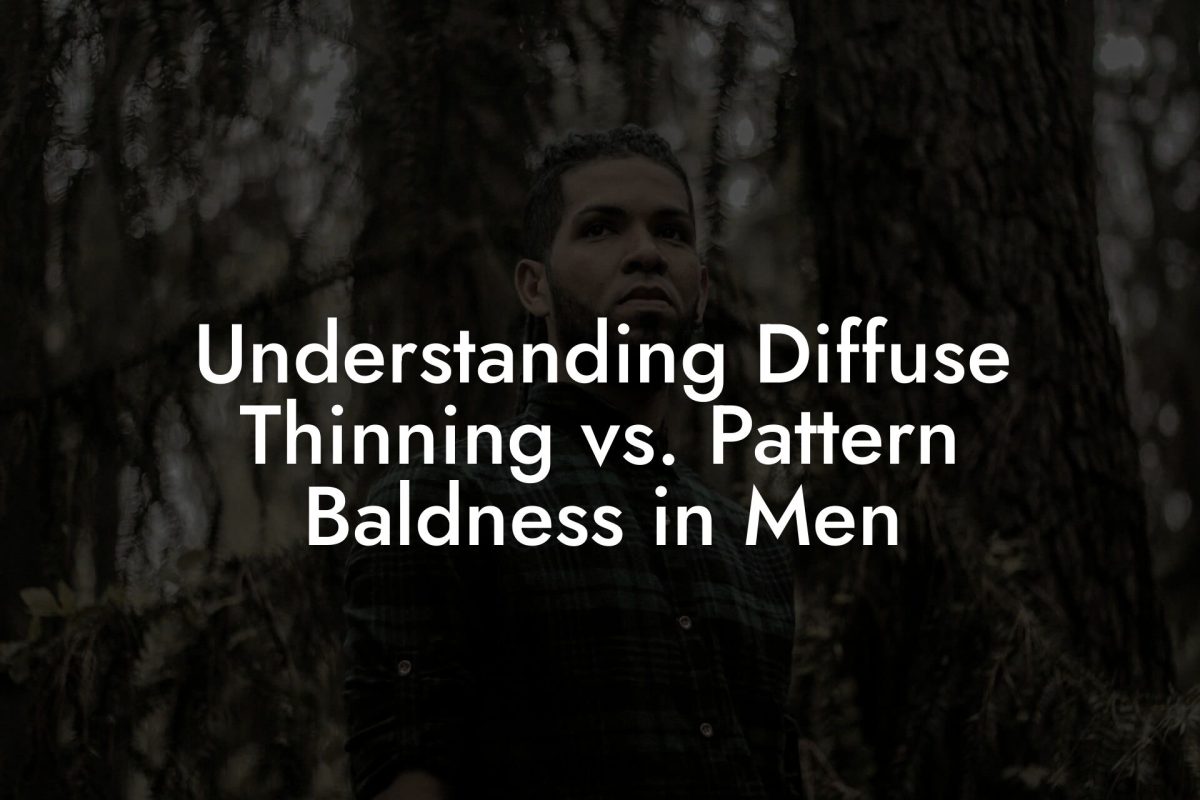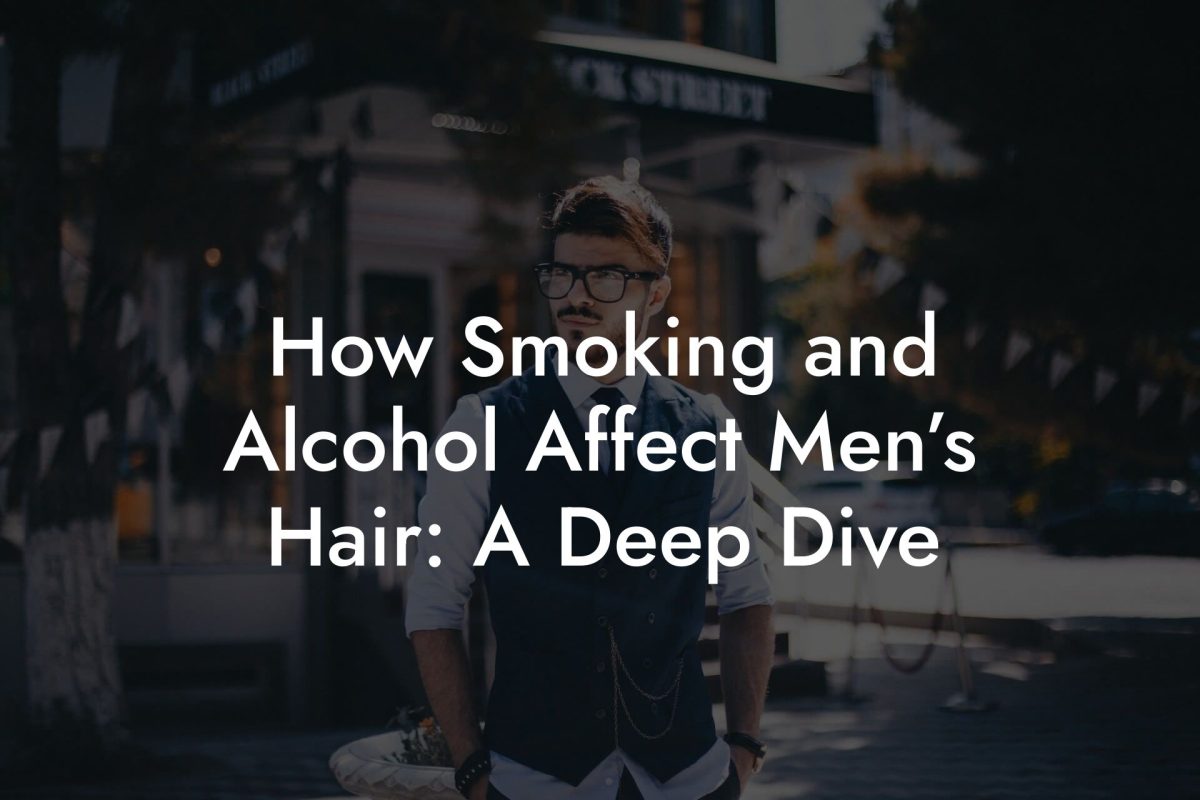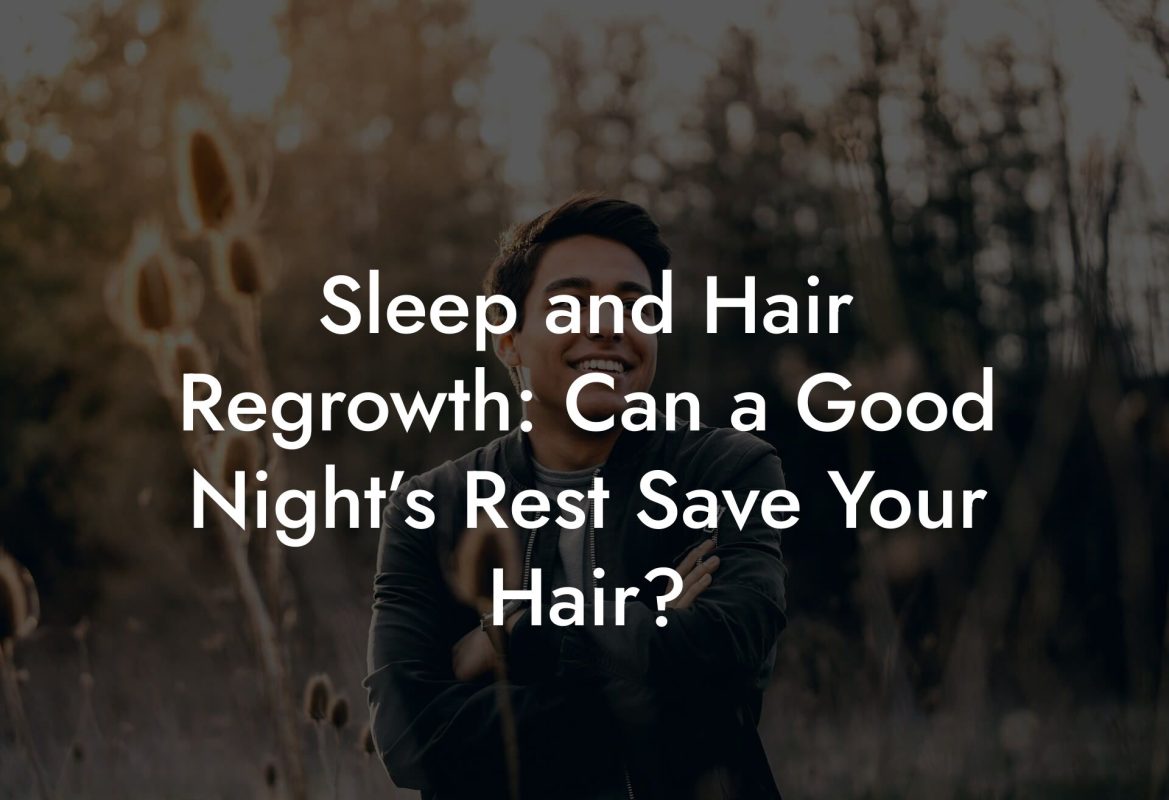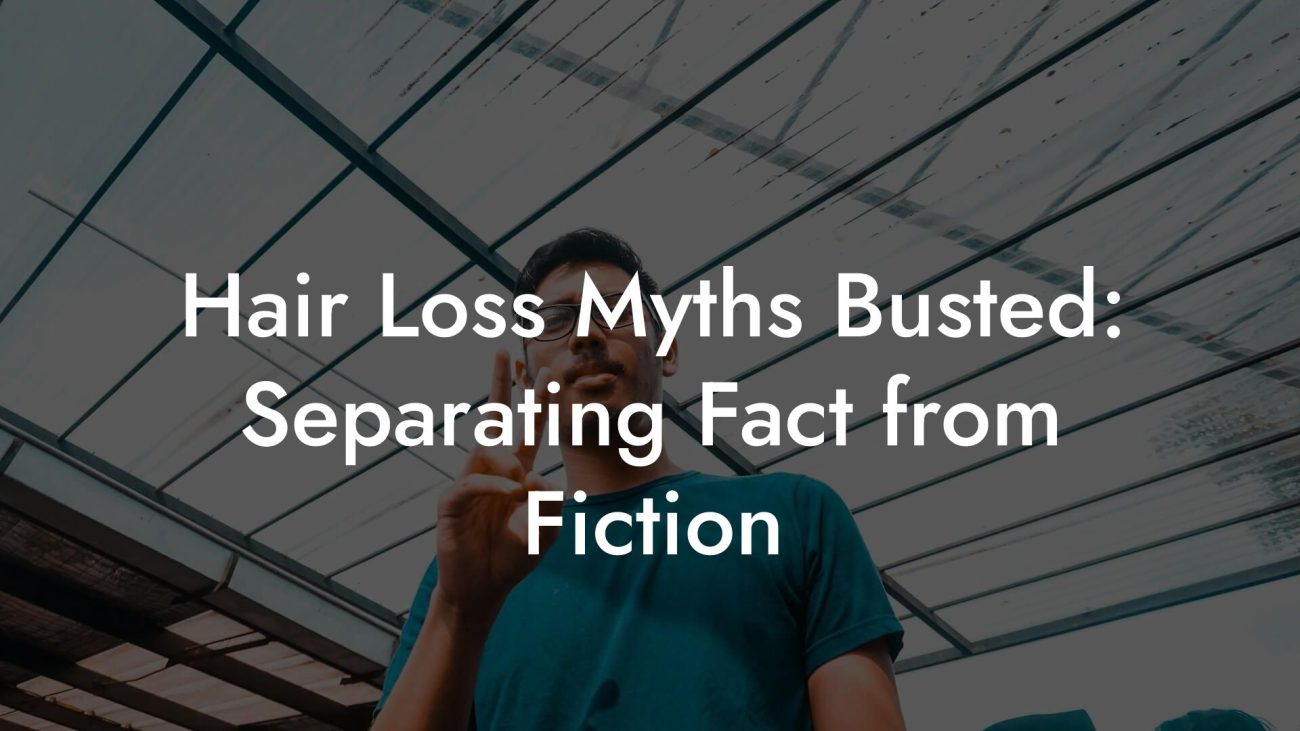Hair Loss Library
The Role of Inflammation in Hair Loss: New Insights for Men
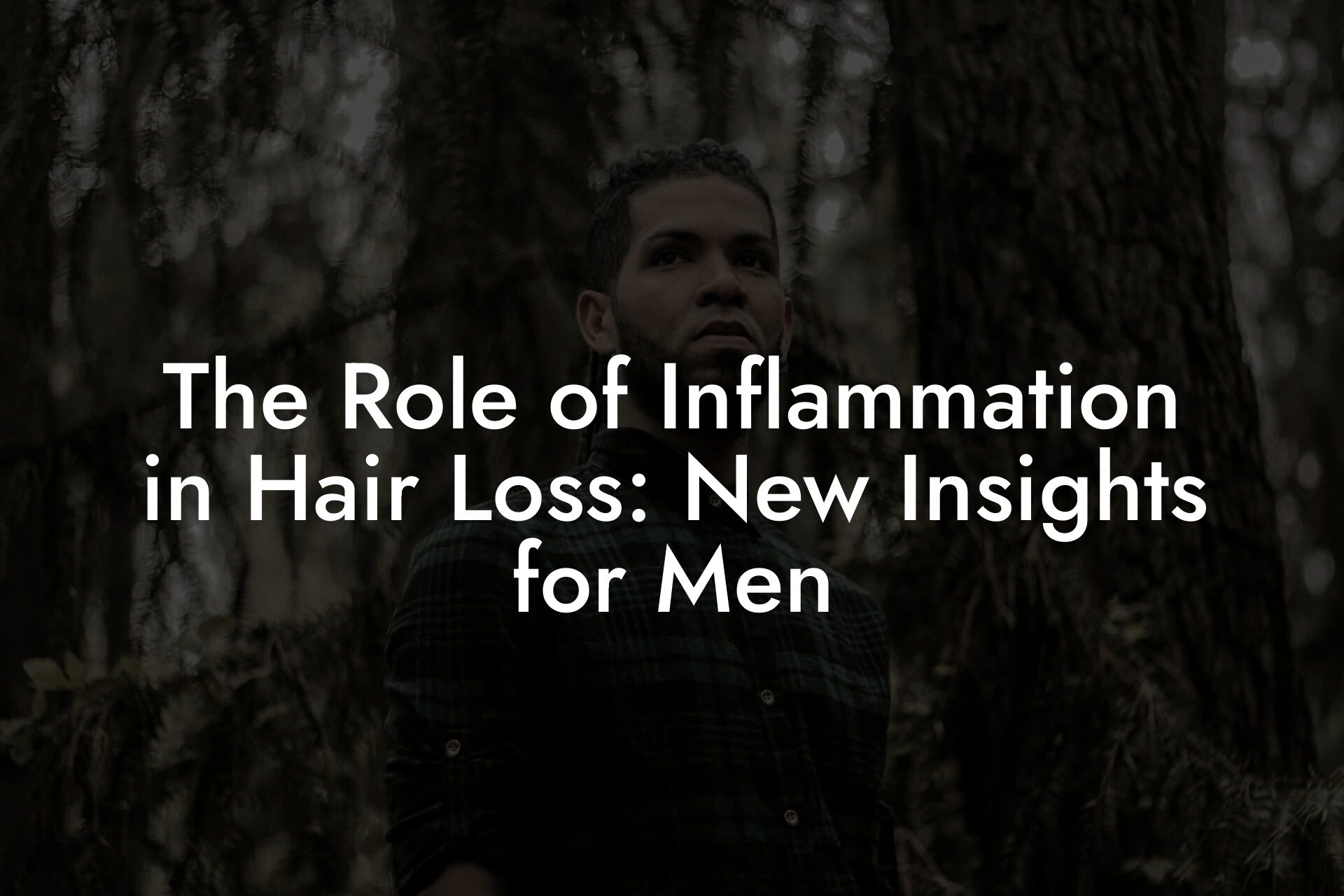
Ever noticed how sometimes your scalp seems to have a mind of its own, staging a mini-rebellion with hair falling out right when you least expect it? If you're a dude in the thick of the millennial or Gen Z era, you're probably juggling work, life, and the occasional bout of bad hair days, only to discover that inflammation might be the secret culprit behind your hair loss. Welcome to Mane Matrix’s deep dive into the role of inflammation in hair loss—a journey that’s as eye-opening as it is humorous, scientifically sound yet down-to-earth.
Inflammation and Hair Loss: What’s the Big Deal?
Inflammation is like that uninvited guest at your dinner party—unexpected and often overstaying its welcome. But what if this pesky party crasher is not just wrecking your scalp’s vibe but also causing your hair to bail? Recent research suggests that chronic inflammation can wreak havoc on your hair follicles, possibly accelerating hair loss in men. This article is here to break down the science behind it and offer new insights into taking back control over your mane.
Rather than drowning you in dry medical jargon, we’re serving up the facts with a twist of real talk, humor, and actionable advice—because understanding the role of inflammation in hair loss should be as refreshing as your favorite iced latte on a summer day.
What Exactly Is Inflammation?
Picture inflammation as your body’s own fire brigade. When your body senses an injury or infection, it sends in the inflammatory response to fight off the invaders and kickstart the healing process. In the short term, this is a good thing—it’s like an emergency repair team rushing to fix a leak. But when inflammation sticks around like a neighbor who never leaves your grill party, it’s chronic, and that’s where the trouble begins.
Chronic inflammation, unlike its short-flamed cousin, can lead to a host of issues—from joint pain and fatigue to damage in tissues. And yes, your hair follicles can get caught in the crossfire, ultimately signaling them to slow down or even stop producing new hair.
In a nutshell, while inflammation is essential for healing, too much of a good thing can lift your hair and leave you wondering where it all went.
How Inflammation Affects Hair Follicles
Scar tissue, red alerts, and the release of certain inflammatory chemicals—your hair follicles receive all of these unwelcome signals when your body is in a constant state of inflammation. Key players in the inflammatory process, such as cytokines and free radicals, can interfere with the normal hair growth cycle. This means that your hair follicles, which should be busy growing strong strands, might get sidelined by inflammation and enter a prolonged resting phase.
In simpler terms: Instead of churning out fresh strands of hair like a well-oiled machine, your follicle factory might slow down or even shut down in response to the inflammatory mess.
The result? Thinning hair and faster hair loss—an unwelcome gift that really crumples your morning mirror routine.
Digging Deeper: The Science Behind Inflammation and Hair Loss
Let’s get a bit nerdy for a while. Research has shown that inflammation can trigger a process called apoptosis, or programmed cell death, in hair follicle cells. Essentially, chronic inflammation causes these cells to undergo premature aging and death, which may lead to weakened hair growth and accelerated hair fall.
Another scientific angle involves oxidative stress—a condition where free radicals outnumber antioxidants in your body—which, in turn, spurs inflammation. Factor in environmental stressors like pollution, UV rays, and high-sugar diets, and you have a perfect storm that leaves your follicles vulnerable.
The above factors culminate in a scenario where instead of being your hair’s best friend, inflammation turns into the ultimate party crasher.
Common Causes of Chronic Inflammation in Men
Now that we understand the inflammatory basics, let’s break down what might be fueling the fire on your scalp:
- Poor Diet Choices: Consuming too many processed foods, sugary snacks, and unhealthy fats can lead to a systemic inflammatory state. Yes, that fast-food run might be doing more than just expanding your waistline.
- Stress Overload: In our modern, hyper-connected world, stress is almost a badge of honor. But chronic stress releases cortisol, a hormone notorious for ramping up inflammation in the body.
- Lifestyle Factors: Lack of sleep, sedentary habits, and even smoking contribute to chronic inflammation. It’s not just about aging gracefully; it’s about arresting the inflammatory process before it ruins your hair.
- Environmental Toxins: Exposure to pollutants and chemicals at work or even in your home environment can trigger inflammatory responses.
- Underlying Health Conditions: Conditions such as autoimmune disorders, metabolic syndrome, and even chronic infections can keep your body in an inflammatory state.
Recognizing these factors is the first step toward managing inflammation and, consequently, your hair health.
Types of Hair Loss Linked to Inflammation in Men
Hair loss isn’t one-size-fits-all, and when inflammation steps into the ring, several forms can develop:
Androgenetic Alopecia
Often dubbed “male pattern baldness,” this common condition is influenced by a mix of genetics, hormones, and yes—chronic inflammation. Inflammatory markers can accelerate the miniaturization of hair follicles, speeding up the appearance of thinning hair and receding lines.
Alopecia Areata
This autoimmune disorder occurs when your immune system mistakenly attacks hair follicles. Though technically a separate condition, research suggests inflammation plays a significant role in triggering and perpetuating the cycle of hair loss observed in alopecia areata.
Cicatricial Alopecia
A rarer form of hair loss, cicatricial (or scarring) alopecia, is characterized by inflammation-induced destruction of hair follicles replaced by scar tissue. Think of it as inflammation burning down the follicle factory permanently.
Understanding these types reinforces the notion that inflammation isn’t just about temporary redness or swelling—it can have lasting effects on your hair’s ability to grow back strong.
Diet, Nutrition, and Lifestyle: Fighting Inflammation at Its Roots
Time to talk turkey—or rather, time to talk food and fitness. Since diet and lifestyle can either fuel or fight inflammation, here are some pointers to help you turn the tide:
Embrace an Anti-Inflammatory Diet
Wave goodbye to excessive sugar and processed junk. An anti-inflammatory diet includes loads of colorful fruits and veggies, omega-3-rich fish (or flaxseeds if you’re plant-powered), and whole grains. Foods like berries, leafy greens, nuts, and olive oil are your new best pals.
Also, consider cutting down on red meat and saturated fats, as these can tip the inflammatory scales in the wrong direction. Instead, lean towards plant-based proteins and healthy fats that do your follicles a favor.
Hydration: The Unsung Hero
Drinking plenty of water is instrumental—it helps flush out toxins and keep your skin and hair follicles lubricated. When your cells are properly hydrated, they can better handle the stressors that lead to inflammation.
Exercise and Movement
Regular physical activity not only maintains overall health but also acts as a natural anti-inflammatory agent. Whether you’re hitting the gym, jogging in the park, or engaging in a dance-off in your living room, movement helps reduce stress and balance your body’s inflammatory responses.
Managing Stress Like a Pro
Stress management is crucial. Incorporate practices such as mindfulness, yoga, or even gaming breaks—anything that helps lower stress hormone levels. Reducing stress isn’t just good for your mental state; it can significantly alleviate chronic inflammation affecting your hair.
By making these dietary and lifestyle shifts, you not only help tame inflammation throughout your body but also support the environment your hair follicles need to flourish.
Medical and Natural Solutions to Combat Inflammation-Induced Hair Loss
When diet and lifestyle tweaks aren’t enough, there are several medical and natural solutions that can help fight off the inflammatory assault on your hair.
Anti-Inflammatory Medications
Over-the-counter nonsteroidal anti-inflammatory drugs (NSAIDs) or prescription medications may help reduce systemic inflammation. However, this option should be considered carefully and under the guidance of a healthcare professional.
Topical Treatments and Shampoos
There are emerging hair care products formulated to soothe inflammation on the scalp. Look for ingredients like ketoconazole, salicylic acid, and even natural extracts that calm irritated skin while supporting follicle health.
Natural Supplements
Supplements like omega-3 fatty acids, curcumin from turmeric, and antioxidants such as vitamin E have anti-inflammatory properties that may support healthier hair growth. As always, chat with your doctor before adding any new supplement to your regimen.
Platelet-Rich Plasma (PRP) Therapy and Other Innovations
Cutting-edge treatments such as PRP therapy harness your body’s own healing mechanisms to stimulate hair growth. By drawing your blood, processing it, and reintroducing growth factors into the scalp, PRP can potentially reduce inflammation and jump-start dormant follicles. It’s like turning your own blood into a miracle serum—and while it might sound like something out of a sci-fi movie, many men have found remarkable benefits.
These solutions, medical or natural, underscore a key takeaway: fighting inflammation is a multi-pronged effort, and success often lies in combining approaches tailored to your unique situation.
The Role of Stress, Gut Health, and Hormones in Inflammation
Beyond diet and lifestyle, there’s a complex interplay between your gut, hormones, and stress levels—all of which can contribute to chronic inflammation affecting your hair.
Stress and Hormonal Imbalances
Chronic stress causes a hormonal roller coaster ride that can disrupt not only your mood but also trigger inflammatory responses. Elevated cortisol levels are known to shut down growth processes, including those crucial for robust hair follicles.
Your Gut Connection
The gut is often dubbed the “second brain,” and a balanced gut microbiome is essential to keep systemic inflammation in check. Probiotics and a fiber-rich diet support gut health, which in turn can reduce the inflammatory markers that negatively affect your hair.
In essence, keeping your inner ecosystem balanced isn’t just good for digestion—it plays a critical role in maintaining an environment where your hair can thrive.
The Mane Matrix Advantage: Simplifying Expert Hair Loss Analysis
At Mane Matrix, we believe that understanding your hair loss shouldn’t require a PhD in dermatology or a series of awkward, expensive doctor visits. Our platform is designed specifically for men who want a clear, jargon-free analysis of hair loss causes without the hassle.
By leveraging advanced analytics and a holistic understanding of the role of inflammation, we provide you with insights that connect lifestyle factors, diet, stress, and genetics with your hair health. It's like having a trusted friend (who also happens to be a hair loss expert) break it all down for you in plain language.
The Mane Matrix approach empowers you to take control—by identifying key inflammatory triggers, offering actionable tips to curb those triggers, and supporting a tailored action plan that fits easily into your modern, fast-paced lifestyle.
Resources and Community Support: Your Next Steps
Overcoming hair loss isn't a journey you need to travel alone. Alongside medical treatments, lifestyle adjustments, and dietary shifts, connecting with a community can provide crucial support, accountability, and even a few laughs along the way.
Whether you join online forums, follow expert blogs, or chat with fellow men grappling with similar challenges, community insights can provide unique perspectives that empower you to take control of your hair health. Look for reputable resources, video tutorials, and social media groups tailored to men’s hair problems, where discussions revolve around innovative anti-inflammatory strategies, breakthrough treatment options, and motivational success stories.
Remember, the first step to reclaiming your luscious locks is acknowledging that inflammation may be playing a bigger role than you thought. Armed with the right knowledge and supported by a passionate community, you’re well on your way to making informed decisions that truly matter.
Mapping Out Your Personal Anti-Inflammatory Hair Growth Plan
Just as no two hairstyles are identical, your anti-inflammatory plan should be uniquely tailored to fit your body’s needs. Here’s a simple blueprint to get you going:
Step 1: Know Thy Body
Start with a comprehensive assessment of your current health. Keep track of dietary habits, stress levels, sleep patterns, and any symptoms of inflammation. If you suspect your hair loss is tied to chronic inflammation, consider getting blood tests that measure inflammatory markers.
Step 2: Revamp Your Diet
Bid farewell to processed foods, and invite an army of anti-inflammatory delights into your diet. Load up on antioxidants, colorful vegetables, and omega-3 fatty acids. A balanced diet can significantly trim down inflammatory markers and boost your hair’s resilience.
Step 3: Integrate Stress-Busting Techniques
Incorporate activities that reduce stress, such as regular exercise, mindfulness meditation, or even a hobby that helps you disconnect from the daily grind. Lower stress levels mean lower cortisol—and that’s good news for your hair follicles.
Step 4: Optimize Your Hair Care Routine
Invest in scalp-care products that are gentle yet effective, freeing your follicles from the grip of inflammation. Look for formulas enriched with natural anti-inflammatory and antioxidant ingredients.
Step 5: Monitor and Adjust
Keep a journal tracking your progress—note changes in your diet, exercise, stress levels, and, of course, your hair’s condition. This iterative approach allows you to adjust your plan as needed until you find the winning formula.
Remember, your journey towards a healthier mane is a marathon, not a sprint. Embrace the process, celebrate small victories, and continuously tweak your strategy to achieve lasting results.
Inflammation-Fighting Lifestyle Hacks for the Modern Man
Let's face it: modern life is busy and sometimes downright chaotic. But here are some lifestyle hacks that can help keep inflammation—and thus hair loss—in check:
- Stay Active: Short bursts of activity throughout the day can counteract inflammation. Try a five-minute walk or some simple stretching exercises—your hair and heart will thank you.
- Digital Detox: Overuse of screens can heighten stress levels. Schedule regular breaks to recharge your mental batteries and lower cortisol levels.
- Quality Sleep: Aim for 7-9 hours of sleep as your body repairs and regenerates overnight. A well-rested body is a well-defended fortress against inflammation.
- Hydration Reminders: Use smartphone apps or a trusty water bottle with time markers to keep your hydration game on point.
- Mindful Moments: Even a couple of minutes of deep breathing can help reset your stress response and keep inflammatory markers at bay.
These lifestyle hacks aren’t just about staving off hair loss—they’re about elevating your overall quality of life. It’s the little changes that can lead to big results over time.
Real-Life Success Stories: Men Who Beat Hair Loss with Inflammation Control
Need some extra motivation? Here are a few stories from men who took control of the inflammation-hair loss connection and reclaimed their confidence:
Case Study 1: From Frantic Hair Loss to a Fuller Mane
Mark, a 32-year-old tech entrepreneur, noticed his hair thinning faster than he could update his app. After a deep dive into his eating habits and lifestyle, he realized his diet was loaded with triggers for inflammation. With guidance from Mane Matrix, Mark overhauled his diet, introduced regular exercise, and even tried mindfulness practices. Over the course of a year, his hair began to show signs of recovery, and his confidence soared. His story is a testament to the power of addressing inflammation head-on.
Case Study 2: Stress, Inflammation, and the Road to Recovery
Jake, a 28-year-old creative professional, grappled with chronic stress and a similarly chronic case of hair shedding. Determined to break the cycle, he instituted daily meditation sessions and swapped high-inflammatory meals for nutrient-rich alternatives. As his stress levels dropped, he noticed a gradual reduction in hair loss. Jake’s journey highlights that sometimes the battle is won before you even step in front of the mirror.
Case Study 3: Balancing the Gut and Taming the Scalp
Chris, a 40-year-old fitness enthusiast, discovered that his gut health was intricately linked to his overall inflammation levels. By incorporating probiotics and fiber-rich foods into his diet, and combining those with his regular training, he witnessed a resurgence in hair growth. Chris’s experience underscores the interconnectedness of gut health, systemic inflammation, and even your scalp’s well-being.
These success stories prove that by addressing the root causes of inflammation, even the most stubborn hair loss can be challenged.
Integrative Insights: Connecting Modern Science with Everyday Life
Science tells us that inflammation is more than just a reaction—it’s an active, systemic process that influences almost every aspect of your health, including your hair. By integrating scientific insights with practical, everyday solutions, you can craft a lifestyle that naturally mitigates inflammation.
Modern research on inflammatory markers, oxidative stress, and the influence of diet has opened up a realm of possibilities for managing hair loss. Whether it’s through anti-inflammatory diets, innovative hair care products, or stress reduction practices, the future is bright for men willing to take proactive steps. At Mane Matrix, we blend modern science with real-world advice, ensuring you have access to both cutting-edge treatments and time-tested lifestyle changes.
With these insights at your fingertips, consider your hair loss not as an inevitable part of aging but as a condition that can be influenced—managed and even reversed—with smart choices and holistic strategies.
Inflammation and Hair Loss FAQs: Your Burning Questions Answered
We’re about to cover some of the most commonly asked questions about inflammation-induced hair loss, providing you with quick answers to help demystify the science behind it.
1. How does inflammation lead to hair loss?
Chronic inflammation releases cytokines and free radicals that can damage hair follicle cells, shorten the growth phase, and trigger cell death, ultimately leading to thinning hair and loss.
2. Can changing my diet really help reduce hair loss?
Yes! A diet rich in anti-inflammatory foods and antioxidants helps lower systemic inflammation, which can improve hair follicle health and reduce hair shedding.
3. Are stress management techniques effective in preventing hair loss?
Absolutely. Managing stress with mindfulness, meditation, exercise, and adequate sleep helps reduce cortisol levels, which in turn can lessen inflammatory responses that contribute to hair loss.
4. What natural supplements might support hair growth by reducing inflammation?
Supplements like omega-3 fatty acids, curcumin, vitamin E, and other antioxidants have been shown to help combat inflammation and promote a healthier scalp environment.
5. Is there a difference between inflammation-caused hair loss and genetic hair loss?
Yes. While genetic factors such as androgenetic alopecia play a major role, inflammation can exacerbate hair loss and affect the vitality of hair follicles regardless of genetic predisposition.
6. How quickly can changes in diet and lifestyle improve hair health?
Results vary from person to person. Some may see improvements in a few months, while for others, it might take a longer, more consistent effort to notice changes in hair density.
7. Can topical treatments help with inflammation on the scalp?
Yes. Shampoos and topical treatments with anti-inflammatory ingredients can soothe the scalp, reduce irritation, and support healthier hair growth.
8. Should I consult a doctor before trying anti-inflammatory treatments for hair loss?
It’s always wise to discuss significant changes, especially if you’re considering supplements or prescription medications, with a healthcare professional who understands your entire health picture.
These FAQs illustrate that while inflammation plays a multifaceted role, there are several actionable strategies to mitigate its effects on your hair.
Your Journey to Empowered, Inflammation-Free Hair Health
Unraveling the connection between inflammation and hair loss isn’t just about understanding mechanisms—it’s about taking charge and instigating change in your lifestyle. Every step you take to reduce chronic inflammation paves the way for a healthier scalp, stronger hair follicles, and ultimately, a mane that reflects your inner vitality.
From re-evaluating your daily diet and stress management routines to exploring innovative treatments under expert guidance at Mane Matrix, your journey is uniquely yours. Embrace the process with a mix of scientific curiosity and a healthy dose of humor—because sometimes, the best remedy for a stressful day is a good laugh and actionable change.
Whether you’re a busy professional, an energetic creative, or just someone who wants to look as fresh as they feel, remember that the power lies in your hands (and on your head!). Step into each day with confidence, knowing that every positive change you make is a step towards a fuller, healthier mane.
As you venture forward armed with new insights into the role of inflammation in hair loss, may you find renewed vigor, expert support, and a community that cheers you on. Here’s to embracing a life with less inflammation, greater hair vitality, and a seamless blend of science and simplicity.
If you loved this article... Dive deeper into the world of mens hair loss with our most popular sections. If there is anything you think is missing or anything you would love for us to write about, just give us a shout.
Why Am I Losing Hair? Unpacking the Science Behind Men’s Hair Loss
The Ultimate Guide to Male Pattern Baldness: Causes and Clues
Hormones & Hair: How Testosterone Impacts Hair Loss in Men
Genetics vs. Lifestyle: What’s Really Causing Your Hair Loss?
Stress and Strands: Exploring the Link Between Anxiety and Hair Loss
Decoding Androgenetic Alopecia: What Every Man Needs to Know
How Aging Affects Your Hair: Understanding the Natural Process
The Role of Diet in Hair Health: Nutrients That Prevent Hair Loss
Environmental Factors: How Pollution and Toxins Trigger Hair Loss
Medical Conditions and Hair Loss: What’s Normal and What’s Not?
The Impact of Medications on Men’s Hair: What You Should Ask Your Doctor
Unraveling Scalp Health: Signs Your Scalp Needs Extra Care
Hair Loss Myths Busted: Separating Fact from Fiction
The Role of Inflammation in Hair Loss: New Insights for Men
Sleep and Hair Regrowth: Can a Good Night’s Rest Save Your Hair?
How Smoking and Alcohol Affect Men’s Hair: A Deep Dive
Understanding Diffuse Thinning vs. Pattern Baldness in Men
Innovative Research: The Future of Hair Loss Studies for Men
Spotting Early Signs: How to Identify Hair Loss Before It’s Too Late
Autoimmune Disorders and Hair Loss: What Men Need to Know
The Science Behind Hair Follicle Miniaturization Explained
How Your Lifestyle Choices Impact Your Hair’s Future
Understanding the Hair Growth Cycle: What Every Man Should Know
When to Worry: Recognizing Abnormal Hair Loss Patterns in Men
The Intersection of Genetics and Environment in Male Hair Loss





